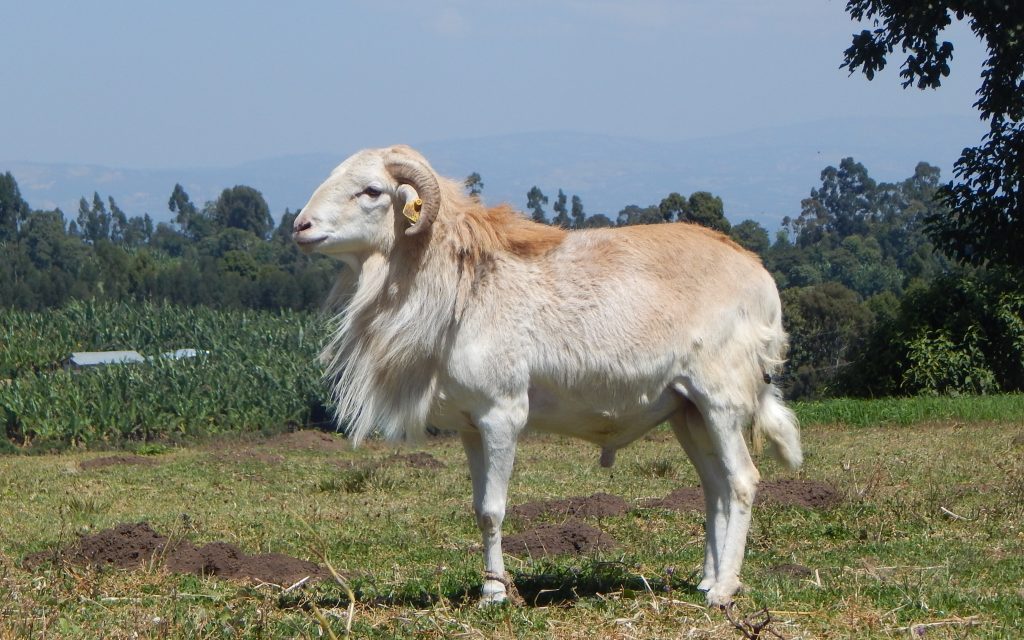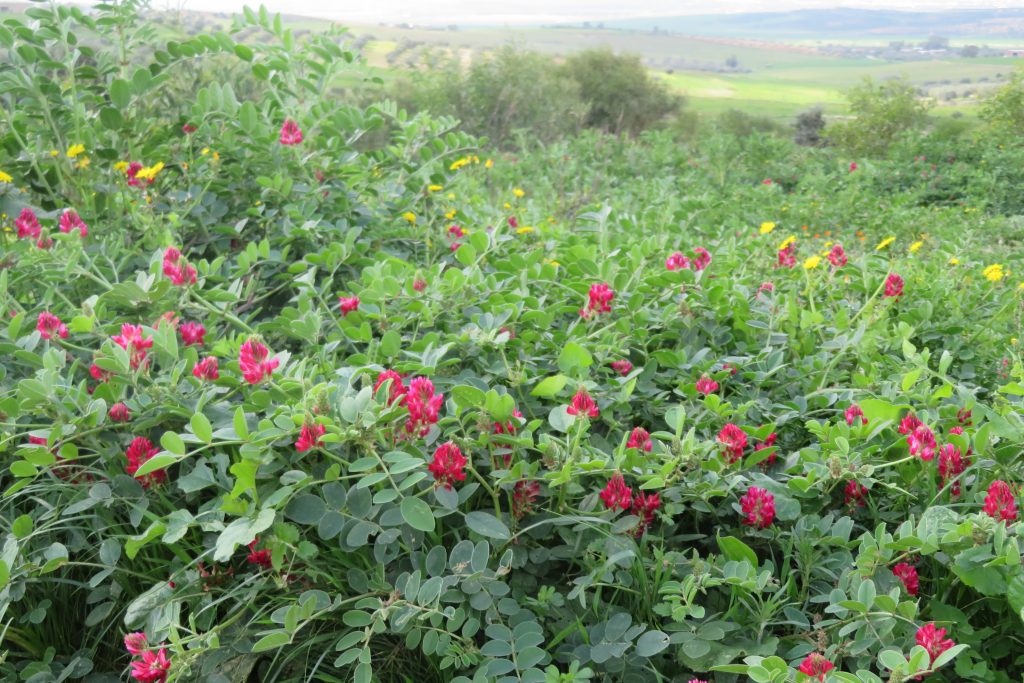

ICARDA’s integrated approach towards more productive and sustainable crop-livestock systems focuses on farmer- and community-based solutions for improving sheep and goat production, sustainable management and restoration of rangelands, producing water-efficient dryland forages, and better integration of crop and Livestock in mixed dryland systems.
Our innovations reduce the environmental footprint of dryland agriculture and aim for Land Degradation Neutrality (LDN) through restoration measures that adapt to climate change. We also deliver knowledge and skills to rural households to ensure product safety and maximum benefits from value addition. To ensure that CGIAR harnesses our expertise now and in the future, our teams collaborate with other CGIAR Centers on new initiatives and frameworks that define future crop-livestock approaches under the One CGIAR reformulation.
In 2020 ICARDA’s Community-Based Breeding Programs (CBBP) continued to ensure farmers’ access to climate-resilient and productive breeding animals. Supported by the CGIAR Research Program (CRP) on Livestock, and the Ministry of Agriculture in Ethiopia through the World Bank and led by Dr. Aynalem Haile, ICARDA’s CBBP’s operate in three major regions of Ethiopia. Over 60 legal breeders’ cooperatives now lead day-to-day operations and an upscaling operation funded by the United States Department of Agriculture involved over 2,000 households, the purchasing and dissemination of 479 bucks from existing CBBPs, and mass synchronization and artificial insemination to disseminate improved genetics. We also linked farmers to better market routes through slaughterhouse companies, livestock cooperatives, and buyers in Dubai.
Dr. Jane Wamatu‘s Sheep Fattening program in Ethiopia funded in 2020 by CRP Livestock in collaboration with the Southern Agricultural Research Institute and the Amhara Regional Agricultural Research Institute, supported 44 youth groups and 44 champion farmers by improving feeding and management strategies, developing entrepreneurial skills, and facilitating the formation of seven officially registered cooperatives from the youth groups. Locally adapted forages that reduce feed costs were also researched, including sweet lupin, a forage with potential for feed, food, and soil fertility maintenance.

Cactus Pear – The Green Gold
In collaboration with the Food and Agriculture Organization (FAO), CactusNet, the Jordanian National Agricultural Research Center (NARC), CRP Livestock, and with the financial support of the Arab Fund for Economic and Social Development, Dr. Mounir Louhaichi and Dr. Sawsan Hassan established a Cactus Nursery in Jordan, where over 100 different cactus pear accessions are now well established. Cactus pear, a dryland forage focus crop for ICARDA, was also selected as a CGIAR@50 innovation.
ICARDA also continued to research rangeland restoration and management throughout 2020. Dr. Mounir Louhaichi and Dr .Mouldi Gamoun investigated the knowledge and use of indigenous rangelands plants in Tunisia for their human health benefits and potential as livestock and wildlife feed. Dr. Louhaichi’s team in collaboration with the International Union for Conservation of Nature (IUCN) are also developing a rangeland restoration toolkit, and in 2020 developed a grazing management tool to improve soil stability and enhances plant health and diversity. They also developed the direct seeding approach which is a set of rapid and cost-effective options that reduce time and labor over conventional shrub transplanting for large-scale restoration of degraded environments.
Conserving and rehabilitating vital rangelands
ICARDA also continued to research rangeland restoration and management throughout 2020. Dr.Mounir Louhaichi and Dr. Mouldi Gamoun investigated the knowledge and use of indigenous rangelands plants in Tunisia for their human health benefits and potential as livestock and wildlife feed. Dr.Louhaichi’s team in collaboration with the International Union for Conservation of Nature (IUCN) are also developing a rangeland restoration toolkit, and in 2020 developed a grazing management tool to improve soil stability and enhances plant health and diversity. We also studied rapid and cost-effective options such as direct seeding to reduce time and labor over transplanting of suitable plants for large-scale restoration of degraded environments.
Meanwhile, in Jordan, research continued on watershed restoration to help restore degraded rangelands, with support from the United States Forest Service, NARC, Utrecht University’s Copernicus Institute of Sustainable Development, and WADI. Due to COVID restrictions, ICARDA’s Stefan Strohmeier communicated with local communities through digital media and trained community members to take over vital field monitoring activities. The research team also joined with FAO to establish an inventory of sustainable land management practices with the potential to prevent sand and dust storms.
Crop Livestock Conservation Agriculture for sustainable crop/livestock systems
The Crop Livestock Conservation Agriculture (CLCA) project is led by Mourad Rekik funded by The International Fund for Agricultural Development (IFAD) in collaboration with CIMMYT, the Institution of Agricultural Research and Higher Education (IRESA) in Tunisia, and the Technical Institute of Field Crops (ITGC) in Algeria. In 2020 the project promoted innovative livestock and crop management practices to optimize climate-resilient and integrated crop-livestock systems under conservation agriculture in Algeria and Tunisia. The project was Implemented across 2,000 ha with 117 farmers, a 40% increase compared to 2019. In addition, CLCA activities in Algeria expanded to over five new districts, 430 farmers and 1,732 ha, compared to 982 ha and 241 farmers in 2019.

